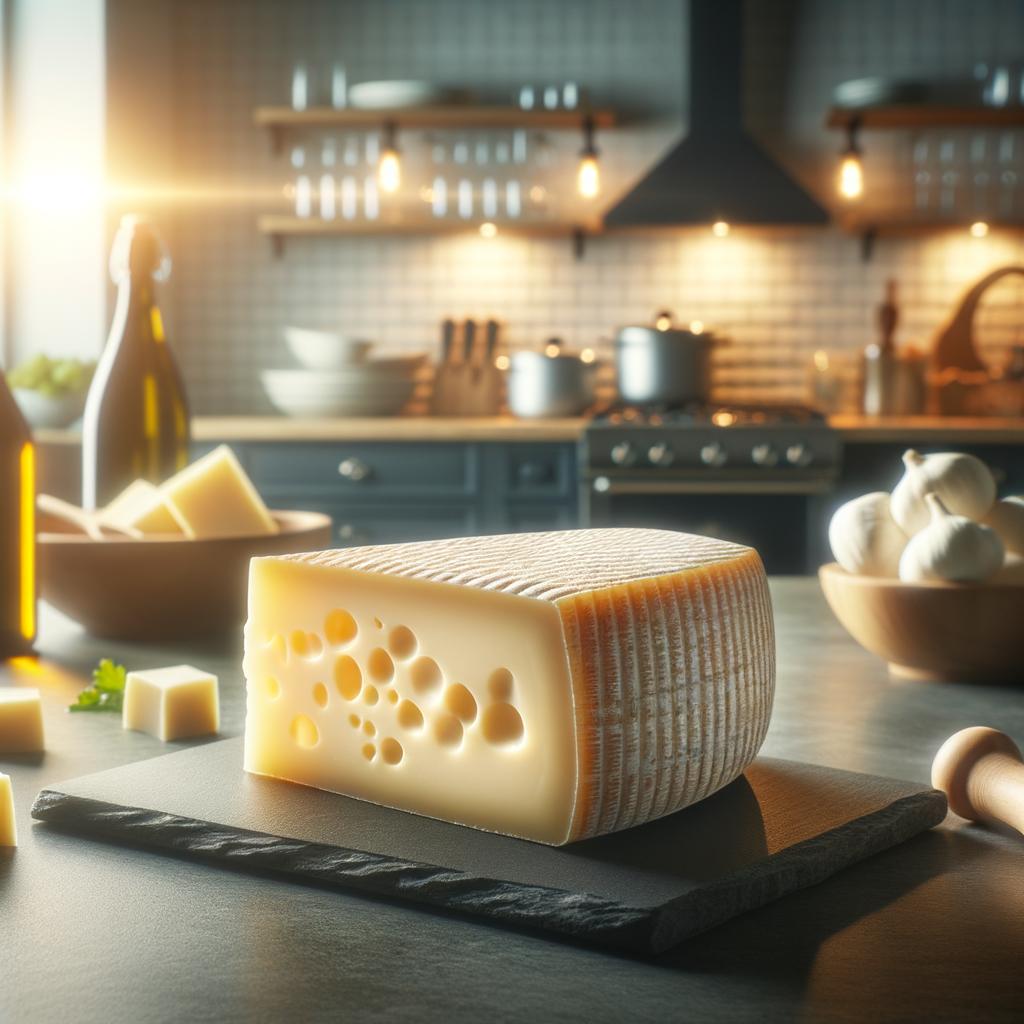Caciocavallo Cheese

Description Caciocavallo cheese, a beloved gem of Southern Italy, is a type of pasta filata or stretched-curd cheese made from cow or sheep's milk. With a teardrop or cone shape, it is reminiscent of an old-fashioned satchel, and it is this unique silhouette that sets it apart from other cheeses. Its exterior boasts a glossy, golden rind, while the interior reveals a delicate, ivory hue. Fresh Caciocavallo is supple and springy, but as it matures, it becomes firmer and more crumbly. Its flavor profile is equally captivating - mild, sweet, and milky when young, but as it ages, it develops a robust, tangy, and slightly salty character, which can be a delightful surprise to the taste buds.
Primary Uses Caciocavallo cheese is a versatile ingredient in the culinary world. It can be eaten fresh, sliced and served with fruits and bread, or used in cooking, where it melts beautifully, making it a perfect addition to pasta dishes, pizza, and casseroles. It's a star in Southern Italian cuisine, particularly in regions like Puglia, Campania, and Sicily. In addition to its culinary uses, Caciocavallo has cultural significance in Italy, where it is often featured in festive meals and local celebrations.
History The history of Caciocavallo is steeped in the rich tapestry of Italian cheese-making tradition. Its name, which translates to "horse cheese," is thought to have originated from the practice of hanging the cheese astride (like a saddle) to age. Some food historians suggest it dates back to the 14th century, while others believe its roots go as far back as the Roman Empire. Over the centuries, its popularity has spread across Italy and beyond, with each region adding its unique twist to the cheese. There's even a charming folklore that the best Caciocavallo is made during a full moon, adding to the allure of this already intriguing ingredient.
Nutritional Information Caciocavallo cheese is a good source of high-quality protein and contains essential minerals like calcium, phosphorus, and zinc. It also provides a range of B-vitamins, particularly B2 (riboflavin), and B12. Like most cheeses, it is high in fat, so moderation is key. However, compared to other aged cheeses, Caciocavallo has a slightly lower sodium content, making it a slightly healthier choice for those watching their salt intake. It's a testament to the balance between indulgence and nutrition, a balance that has been struck over centuries of cheese-making tradition.

